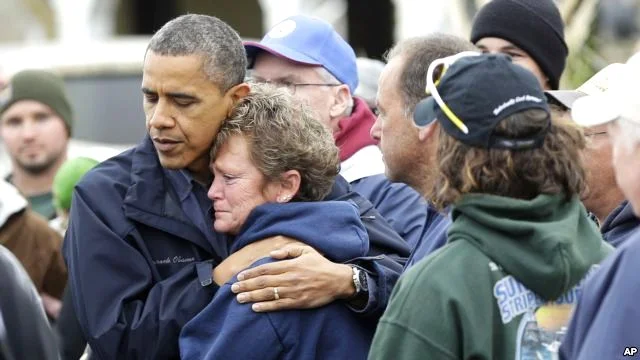A lot of that has to do with technology. But that may not turn out to be the main reason, and certainly not the only one, for why there may be a radical change in the jobs people do in the future.
 |
| Jack Ohman in Sacramento Bee via Politico |
This is one set of effects of the climate crisis that are going to recur more often.
Other effects will also.
More and more people are going to be occupied in dealing with these effects: in responding as well as planning and implementing plans to respond to them and to soften their blows with preventive measures, design and strategies. The climate crisis is a job creator.
Further effects will make more changes in the kinds of jobs society needs and demands. Eventually climate change will be a major determinant. But year by year the pace and extent will increase, and today might be a good day to take a good look at what is needed, and what you can do.
For the climate crisis is no longer an inconvenient truth. The climate crisis is a transformative truth.
This has been argued by writers like David Orr (Down to the Wire, 2009), Bill McKibben (Eaarth, 2010) Mark Hertsgaard (in Hot, 2011) and Naomi Klein (This Changes Everything, 2014.) It is argued partly to motivate people to address the causes of climate crisis, to ensure that things don't get even worse. But there are--even more clearly now--effects that are coming that also must be addressed. Because of the time lag between cause (greenhouse gas pollution) and effects, a near future of accelerating worsening is highly likely.
But it's not all about politics, and it's certainly not all about being victims. It is also about the active work that will need to be done, and the people who will do it.
When today's children are young adults, their choice of occupations and careers will necessarily be influenced by the climate crisis and its ongoing effects. But today's young adults, in their 30s and 40s, have the opportunity to start responding to this crisis in the work they choose to do.
People in the social media field right now might look closely at how social media is being used to deal with the crisis in Texas, and how it could serve the situation better. People in technology might look at Texas with an eye on how their specific field or even a modification of their job could help deal with such a crisis.
Young people in their last years of education who are interested in management, or managers considering a change, might take a hard look at what emergency management entails, and the work they could do.
Those interested in medicine could look at the public health challenges, and what jobs there are or should be that respond. And so on. Many people in many careers can look at how their skills might apply.
Meanwhile, people will be looking for new ways to address the causes of global heating. Jobs in clean energy are already transforming industry.
Eventually, people are probably going to specialize less, or at least many are going to have to know how to do more than one thing, and they will be practical things. Making things and growing food will no longer be outsourced quite so much. Careers in moving digital money around may not be so well-paid and appealing.
And it wouldn't be a bad idea for some people to learn some trades that are fast disappearing, like how to repair things (those things, that is, that are still not so foolishly complex that no one can fix them.) Sewing and tailoring, shoemaking and repair, are probably good solid jobs for a few right now, but may well be important trades in the future.
Nobody really knows, but I do think many don't take into account that technology requires reliable power grids and global access to raw materials that remain relatively cheap. All of that is likely to be up for grabs. So I wouldn't necessarily count on AI drones and an internet of things.
The transformed world won't be easy, but at least these jobs are meaningful. Jobs might be hard but they might be fulfilling, though it seems unlikely that word would be used much. Maybe if people in position to do so started now to change, they could make the future a little easier for the next generations.
Update: As if to emphasize the changes underway, Saturday in Arcata was the hottest day we've experienced since we arrived here 21 years ago. And not by a little. I can count the number of 80+F days since then, but the temps hit the mid 90s. Plus I've never experienced the density of smoke from forest fires over several days, leading to respiratory irritation and worse. There are going to be effects of the climate crisis here, notably the sea level rise that could turn Arcata into an island. But excessive heat isn't one of the predicted features. Of course, it wasn't nearly as bad as the 100F+ temps in the Bay Area, or the temps in the 115 range east of us up here. But this was a taste of what it would be like here. Temps are going down now, but the smoke is predicted to be with us into midweek. For a day or a weekend the heat and always present humidity were miserable, but also a chance for a more classic beach scene. Long term however it could easily become dangerous. And already, forecasters suggest the hot temps may return by next weekend.
And there's another hurricane headed for land.
















